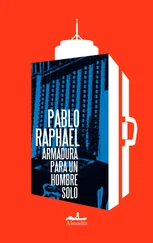They met at two o’clock on a Saturday afternoon, as if by repeated accident. Ulrich assumed her husband was not around at that time, though she did not say so.
She loved architecture, and took Ulrich to see buildings she found interesting, so they could discuss them together. Her sister was a famous architect who won the Red Banner of Labour and was sent on a trip to Italy once as a reward for her work. Later she designed hotels on the Black Sea, and something in Cuba.
A sanatorium, Ulrich thinks.
Diana thought the Moscow styles were not suited to the Bulgarian climate, and decried the new apartments with their thick walls and small windows. She had ideas about how a building should respond to the shape of a human. She took him to the massive Rila Hotel, and they walked all round it, discussing how it felt, and trying to remember what stood there before. She was unafraid: she took him into the lobby and pointed out the features, and they sat there for a cup of tea.
She talked about her children, grown up and married, and her husband, who was somebody in the party. He was involved in planning, and Diana asked Ulrich about his views on the economy. They talked about the Kremikovtsi steel plant, just then opened. Ulrich said,
‘There is no viable ore in Bulgaria. They have built the mightiest steel plant of all the socialist countries, and there is no ore. They have lost their minds!’
She nodded, but made no comment.
She wished she could have been a cabaret singer. She laughed like a girl when she said it: how she would have liked to have legs like Marlene Dietrich and to sing love songs to an audience every evening. He brought her a gift of a jazz record he still had from Berlin, which she gently refused.
Occasionally she ran across him and said, I can’t see you this Saturday , and he felt as if his treasure had been snatched away.
He did not tell his mother about Diana, and never invited her to his home. It was an indefinable thing, only slightly beyond what would bear scrutiny by the world. Sometimes they just wandered along the grassy railway tracks, so they could be together. But they never called each other by their first names.
One day they went to the St Nedelya cathedral. Ulrich had not been inside it since just after the 1925 bomb, when he had visited it in ruins with his father. Now it was perfectly restored, and their footsteps echoed through the calm interior. They leaned backwards to look up into the dome, and their heads touched. He became talkative as they left. He told her about his father.
‘He loved God. I never understood anything about religion, but my father loved churches and God. He was very quiet about it. I think there were a lot of things he did in silence. When he was younger he talked a lot, but it was not necessarily about the things that were most important to him.’
He told her about Boris, whose death followed on from this building’s destruction.
She took him to a café and ordered Coca-Cola, which had come into Bulgaria. She offered it to Ulrich and he said,
‘I don’t like alcohol.’
‘It isn’t alcohol!’ She laughed. ‘All those Bulgarian films we saw, where American soldiers drank Coca-Cola to put themselves in a drunken fury before battle — they were all lies!’
Ulrich sipped it and told her he liked it. He gave the glass back to her, and watched the way she drank. He said,
‘I care very much about these times we spend together.’
She smiled, and took his arm. They walked outside, where there was a crowd watching a dancing bear. The bear towered over its two minders, lumbering to the drum. There was a chain through its nose.
‘You know how they train them?’ she said. ‘They bang a drum and set the cubs on hot coals, so they jump from one foot to the other to relieve the pain. After a while, they don’t need the coals any more. Just banging the drum is enough.’
The hopping bear looked inexpressively around the audience, its eyes like small buttons in its enormous head. The two men chanted to the crowd, tweaking children’s noses, trying to keep it festive.
‘It looks like dancing,’ Diana concluded. ‘But it’s not.’
She kissed Ulrich lingeringly on the cheek, though there were people all round.
It was the next weekend that she said,
‘I don’t think I can go out with you any more. My husband is jealous.’
Ulrich said,
‘You told your husband?’
‘Of course.’
It stopped at once, and then they saw each other only in passing. Once, Ulrich encountered her with her husband, carrying home a child’s tricycle, and she introduced them, and the man was very affable.
She was not yet old when she died. A kidney infection killed her. Ulrich found out only a long time later.
23
ONCE A YEAR, there was a maintenance shutdown at the factory. The entire system was drained and broken down for repairs.
Ulrich still remembers the astonishing silence of those intervals, and the echo of human voices in the metallic expanse.
There was a worker who liked to sing in the factory at those times. She was a small woman with a nimble soprano voice, and she loved the factory acoustics, which made the sound swell around her. She had a place where she used to stand, and she sang in all the breaks, not caring who listened: folk songs, arias, and whatever else she liked.
One day, during one of these shutdowns, this woman was singing an old drinking song from her part of the country. It was lunchtime, and people were playing cards. The day was mild, and Ulrich stood outside, watching the machines chewing in the open mines below. There were others around him, talking and smoking.
Comrade Denov came over, his shirtsleeves rolled up. He leaned against the wall, mirroring Ulrich’s own pose.
‘Isn’t it beautiful?’ he said warmly.
Ulrich was not sure what he meant. The day? The singing? The factory parts laid out on the concrete? But he did not ask. Whenever he met Denov he was gripped with guilt. He could not overcome that feeling, even though he was in the right.
They stood for a moment, not speaking. The song was beautiful. Comrade Denov said,
‘You were always a faithful colleague.’
And he gave one of his strange grimaces, which could be humour or gall.
Ulrich was thrown into confusion. Why did Denov speak in the past tense? Did he know what Ulrich was doing?
Ulrich could not summon so much as a grunt in response. The song ended in the factory and, humming it over the mining noise, Denov walked away.
Elizaveta burst into Ulrich’s room one night while her friends were drinking round the table. The door slammed into the wall.
‘Come and join us,’ she cried. ‘Come and have a drink!’
She stood unsteadily in the doorway in a tiger-print dress. He had been trying to sleep.
‘You look disgusting.’
She stared at him for a moment.
‘What did you say?’
She anchored herself with the door handle. He did not repeat himself. She said angrily,
‘One day I’ll tell you exactly what happened to me during those years. Exactly what I had to do to survive till I saw your face again. Now you say dirty things to me just because I want to enjoy my last days.’
To his consternation, she began to weep.
‘You won’t talk to me,’ she wailed. ‘You don’t like me talking to other people. You won’t so much as have a drink with your own mother.’
She sat on his bed and looked at him, her tears still flowing. Her bones protruded, and she smelt of alcohol.
‘You’re impossible to live with.’
She let herself down heavily beside him, forgetting her guests, and drew her feet on to the bed. They lay together in silence while the party continued in the other room.
Читать дальше
Конец ознакомительного отрывка
Купить книгу












